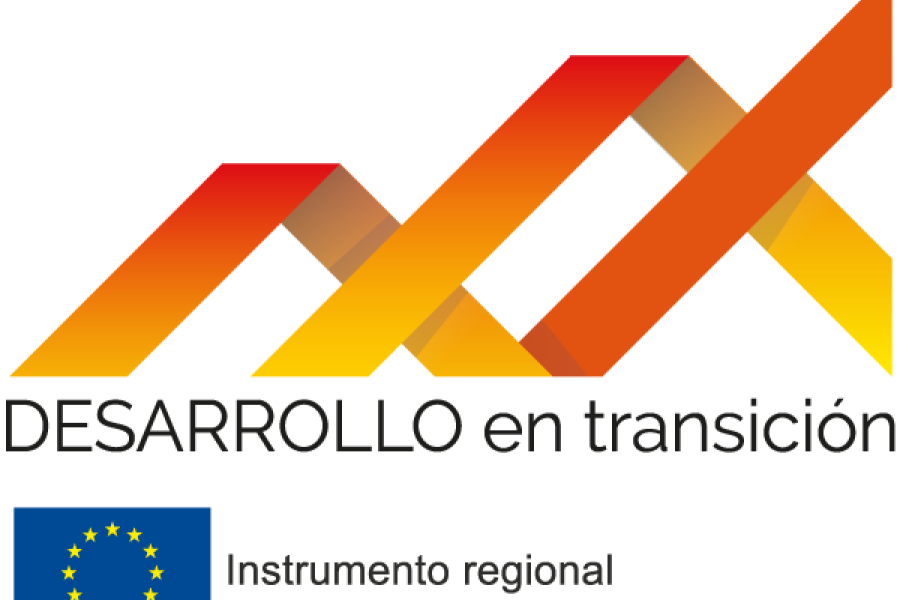It is Necessary to Rethink the Concept of Development in Light of International Cooperation, Experts Gathered at ECLAC Sustained
Alicia Bárcena, Executive Secretary of the United Nations regional organization, and Stella Zervoudaki, Ambassador and Head of the European Union Delegation in Chile, inaugurated the seminar that initiated a week of debate in Chile about the new concept of “development in transition.”
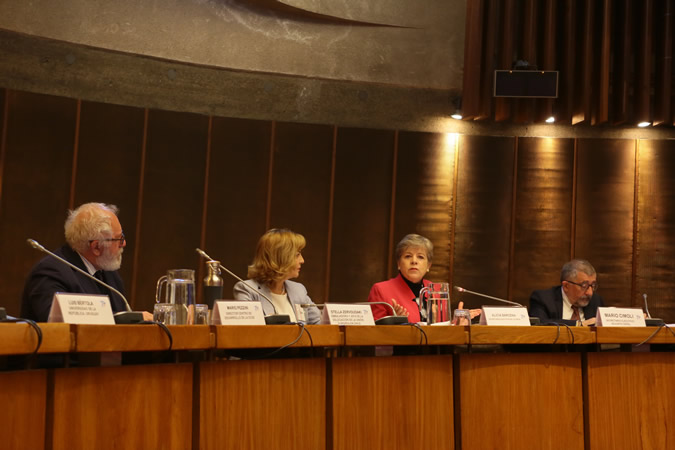
It is necessary to rethink the concept of development in light of international cooperation, with the 2030 Agenda’s Sustainable Development Goals (SDGs) serving as the framework of reference, contended the experts participating in the seminar “What we know and still wonder about Development in Transition?”, organized jointly by the Economic Commission for Latin America and the Caribbean (ECLAC), the European Union, the Development Centre of the Organization for Economic Cooperation and Development (OECD), and the CAF-Development Bank of Latin America.
The two-day event, which kicked off “Development in transition week,” was inaugurated this Tuesday in Santiago, Chile by Alicia Bárcena, ECLAC’s Executive Secretary, and Stella Zervoudaki, Ambassador and Head of the European Union Delegation in Chile, with the participation of Mario Pezzini, Director of the OECD Development Centre, and government officials and academics from both regions, whose views will be included in the forthcoming Latin American Economic Outlook 2019 (LEO) report.
During her remarks, Bárcena explained that the European Commission, the OECD Development Centre and ECLAC have promoted a debate on a global scale regarding the challenges that so-called middle-income countries (including nearly all Latin American and Caribbean nations) face to access the resources originating from international cooperation, such as Official Development Assistance (ODA), concessional funds, the Green Climate Fund and special treatment in trade matters, among other mechanisms.
Although thus far the main discussions have been grouped together under the umbrella of “development in transition,” countries are still debating the best way to conceptualize this new narrative proposed for international cooperation, so that it may fully include middle-income countries and be aligned with the challenges of the 2030 Agenda for Sustainable Development, ECLAC’s Executive Secretary indicated.
Along with applauding the holding of “Development in transition week” at ECLAC – which she described as a “privileged forum” and an “incubator of ideas” – Ambassador Stella Zervoudaki called for making the results of current cooperation mechanisms visible in a concrete way and for basing the new debate on the expected objectives and on the capacity to measure them, through clear and familiar language.
In this way, she said, consensus may be achieved between the sectors that seek short- and long-term results, especially in the framework of the negotiations that are currently taking place on this issue in the European Parliament.
In the following session, Mario Pezzini, Director of the OECD Development Centre, analyzed the factors that hinder overcoming the hegemonic view of development and complicate the transformation of the current cooperation model. “We cannot think that development is only the fight against extreme poverty. Public policy, international cooperation and dialogue are always needed,” he said.
To contribute to the debate, Alicia Bárcena mentioned six characteristics shared by the countries that face new challenges in terms of cooperation. These are countries, she said, that have reached high levels of GDP per capita, but where persistent structural problems keep them from achieving development with equality and sustainability; countries where there are gaps in savings and investment; countries with enormous inequalities and without the institutional mechanisms to resolve them; countries with broad middle-income sectors that are increasingly manifesting their discontent; countries with low productivity; and countries with high degrees of climatic and financial vulnerability (which mainly affects the Caribbean).
To achieve a new perspective on international cooperation that is more horizontal and less asymmetrical, it is necessary to discuss in depth issues such as the measurement of indicators, the transference of technology, fiscal policies and multilateral dialogues, which include the State, the private sector and civil society, Bárcena stressed. This is the only way to move toward development with equality in Latin America and the Caribbean and to end the culture of privilege, she said.
The “Development in transition week,” organized by ECLAC, the EU and the government of Chile, will take place through October 5 in Santiago.
On Wednesday, October 3, the eighth Meeting of the Presiding Officers of the Committee on South-South Cooperation (a subsidiary body of ECLAC) will take place, and on Thursday, October 4, the high-level dialogue “Development in transition: development challenges in a changing world” will be held, with keynote addresses by Alicia Bárcena, Executive Secretary of the United Nations regional organization; Neven Mimica, Commissioner for International Cooperation and Development of the European Union (EU); and Roberto Ampuero, Minister of Foreign Affairs of Chile.
Follow the debates on social media with the hashtags #DiTWeek and #DevinTransition.
Related content
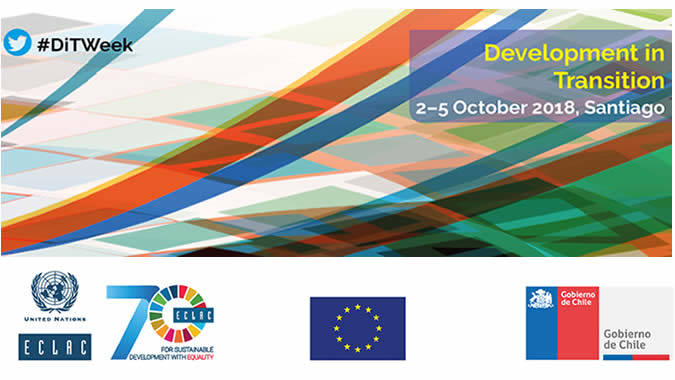
ECLAC, the European Union and the Government of Chile Organize a Week Dedicated to “Development in Transition”
On Thursday, October 4, a high-level dialogue will take place with keynote addresses by Alicia Bárcena, Executive Secretary of the UN regional organization; Neven Mimica, EU Commissioner for…
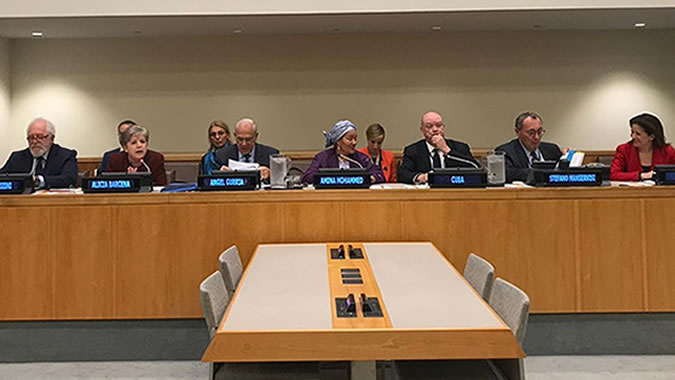
International Cooperation Requires a New Narrative that Fully Includes Middle-Income Countries in Order to Achieve the 2030 Agenda
In the framework of the United Nations General Assembly that is taking place in New York, ECLAC’s Executive Secretary, Alicia Bárcena; the European Commission’s Director-General for International…
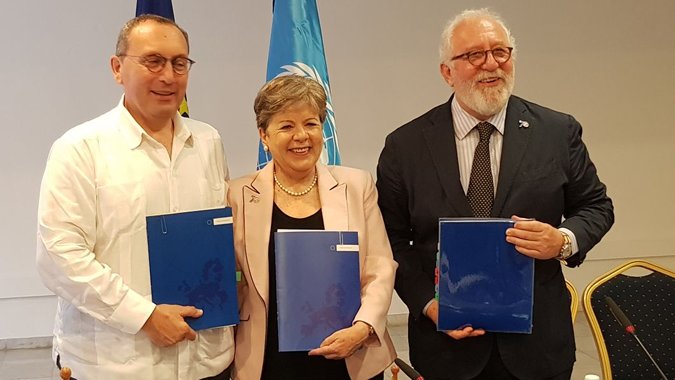
European Union, OECD and ECLAC Sign Agreement to Facilitate the Development of Countries in Transition
The instrument was signed today in the framework of ECLAC’s thirty-seventh session, which is taking place through Friday, May 11 in Havana, Cuba.
Subregional headquarter(s) and office(s)
Related link(s)
Country(ies)
- Latin America and the Caribbean
- European Union
Related project(s)
Contact
Public Information Unit
- prensa@cepal.org
- (56 2) 2210 2040
